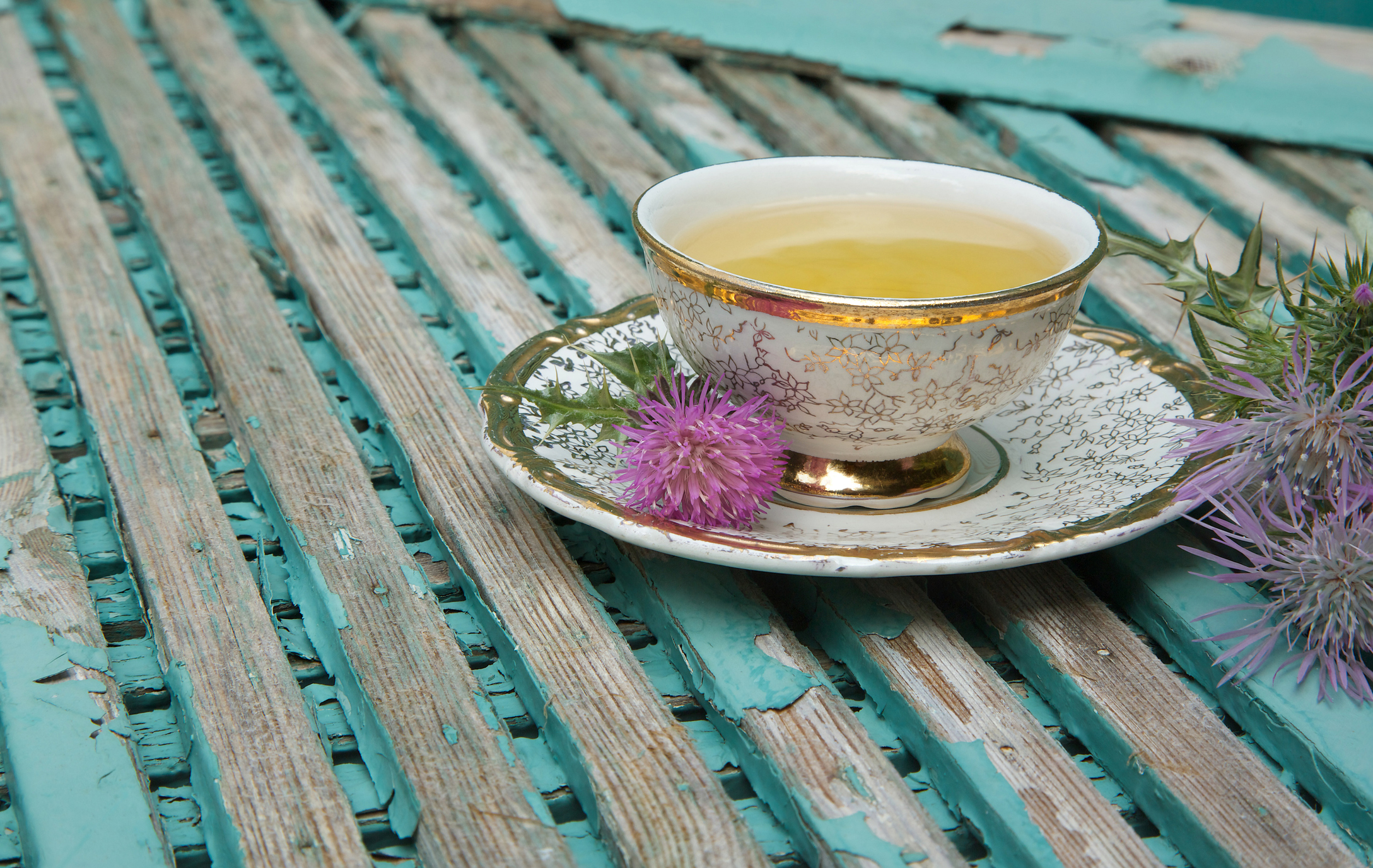How to Make Milk Thistle Tea

In this post I want to talk about milk thistle tea and how it benefits the body.
Milk Thistle Tea: Health Benefits, Usage, and Preparation
Health Benefits:
Milk thistle (Silybum marianum) is widely known for its liver-protective properties, mainly due to the active compound silymarin. Silymarin is a complex of flavonolignans, which have antioxidant, anti-inflammatory, and detoxifying effects. Here are some key benefits, particularly for the liver:
Liver Detoxification: Silymarin helps detoxify and repair liver cells that have been damaged by alcohol, toxins, or fatty liver disease.
Promotes Liver Regeneration: It can stimulate protein synthesis, allowing the liver to regenerate and repair itself more effectively.
Antioxidant Support: Silymarin acts as a powerful antioxidant, reducing oxidative stress in liver cells.
Protects Against Fatty Liver: It can help reduce the accumulation of fat in the liver, preventing the progression of non-alcoholic fatty liver disease (NAFLD).
Supports Cirrhosis and Hepatitis Recovery: Milk thistle is often used as a complementary treatment to aid recovery from cirrhosis and chronic hepatitis.
Absorption of Silymarin: Silymarin is not easily absorbed by the body in its natural form. However, when consumed as tea or in supplement form, it is absorbed through the digestive system, although bioavailability can be somewhat limited. Some formulations of silymarin supplements include phosphatidylcholine to improve absorption. For teas, although the absorption rate may be lower than supplements, consuming it regularly can still provide liver benefits.
Possible Side Effects and Warnings:
Allergies
Milk thistle is part of the ragweed family, so those with ragweed allergies may experience allergic reactions such as itching or rashes.
Digestive Upset: In some cases, milk thistle can cause mild digestive issues like diarrhea or bloating.
Interactions with Medications: Milk thistle can interact with certain medications, especially those processed by the liver, such as blood thinners, cholesterol-lowering drugs, and some chemotherapy drugs.
Hormonal Effects: It may mimic estrogen in the body, so people with hormone-sensitive conditions like breast cancer should consult a doctor before consuming it regularly.
Milk thistle tea is a gentle yet powerful herbal remedy, particularly for liver health. It offers detoxifying and regenerative support, with a mild and earthy flavor. While the tea may have lower concentrations of silymarin compared to supplements, consistent use can still provide notable benefits. As with any herbal remedy, it’s best to use it in moderation and consult with a healthcare professional if you have underlying health conditions or are on medication.
You can make tea from the flowers of the milk thistle plant, but the seeds are where most of the beneficial compounds, particularly silymarin, are concentrated. The flowers, while still part of the plant, do not contain the same potency of liver-supporting antioxidants as the seeds. That being said, the flowers can still offer some mild benefits, particularly due to their potential antioxidant and anti-inflammatory properties.
Benefits of Milk Thistle Flower Tea:
While not as powerful for liver support as seed-based tea, the flowers may provide general antioxidant effects, which can help reduce oxidative stress and inflammation in the body.
Drinking tea made from the flowers may support general wellness, but it won’t deliver the same silymarin levels that are key for liver health.
Making Milk Thistle Flower Tea:
You can harvest the flowers, dry them, and then steep them in hot water to make a tea.
To prepare it, use 1 tablespoon of dried flowers per cup of boiling water and steep for 10-15 minutes.
The flavor of the tea from the flower is similar to the seed-based tea—mild, with a slight earthy and floral note. However, it’s more about the experience of drinking an herbal tea with potential mild health benefits than using it as a liver tonic.
Conclusion:
While you can make tea from the flowers of the milk thistle plant, the benefits for liver health will be significantly less compared to tea made from the seeds. The flowers might offer general antioxidant support, but if you are looking for liver detoxification and regeneration, the seeds are the better option.
How to Make Milk Thistle Tea:
Ingredients:
1 tablespoon of crushed milk thistle seeds (or a pre-made milk thistle tea bag)
1 cup of boiling water
Instructions:
- Crush the seeds slightly to release their beneficial compounds.
- Place the crushed seeds in a tea infuser or directly into a cup.
- Pour boiling water over the seeds and let steep for 10-15 minutes.
- Strain the tea (if using loose seeds) and enjoy.
Milk thistle tea has a mild, earthy, and slightly nutty flavor. It can be a bit bland on its own, so many people choose to add a bit of honey, lemon, or a slice of ginger to enhance the taste.
Nutritional Breakdown (Per Cup):
Calories: ~2-5
Protein: 0g
Carbs: 0-1g
Fats: 0g
Fiber: Minimal (unless consuming whole seeds)
Silymarin concentration in tea will vary depending on the quality and quantity of seeds used, but drinking tea regularly can still contribute to your intake of beneficial antioxidants.
Suggested Usage Per Day:
For liver support, it is typically suggested to consume 1-2 cups of milk thistle tea per day.
Studies on silymarin supplements often suggest doses between 200-400 mg of silymarin extract, but the tea form may deliver lower concentrations. However, regular consumption is thought to be helpful over time.
Print the Recipe Here
Disclosure: This recipe and the information provided are intended for informational purposes only. It is not a substitute for professional medical advice, diagnosis, or treatment. Always seek the guidance of your healthcare provider with any questions you may have regarding a medical condition or before making any changes to your health regimen.

